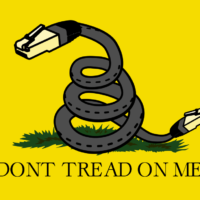

The Future of an AI Workplace
I’m soon to be out of a job. Let’s face it- AI could probably write this column in less time than it takes me to start my computer and mix myself the stiff cocktail it usually takes for me to slog through this drivel. In fact, if I asked you with utter sincerity whether or not you think AI wrote last week’s column, many of you would be hard-pressed to decipher whether or not it had. Some of my more sophisticated and faithful readers might be able to distinguish features of my unique writing style. Others might note a difference in the sense of humour, as in, the computer actually has one. But the reality is that AI is more than capable of spouting out a thousand words on any given subject each week, which basically renders my services obsolete and redundant. But if you’re sitting back laughing at that prospect, comfortably enjoying the existential futility of a pathetic middle-aged man, thinking that the world could do with one less self-involved blog writer, better check yourself before you wreck yourself because AI isn’t just coming for my job. It’s coming for all of us.
Artificial Intelligence is set to take over a variety of tasks that once required the complex ideation of human intelligence. But with the rampant development of AI and the breathtaking rate at which this technology learns from its own experiences, as well as the treasure trove of historical human experiences, we are starting to get a glimpse into just what AI is capable of doing in the not so distant future. Already we have seen AI prove capable of writing copy, managing business finances and productivity, creating full-fledged marketing campaigns, and designing visual images and audio content that retain the verisimilitude of human-produced entities. So just what is left for humans to do?

The reality is not a whole hell of a lot. As we peer into the unknown of what the future may bring, one thing is immediately clear: A whole lot of people are going to have to find a new vocation as employers look to artificial intelligence to perform the tasks that once occupied our daily work lives in between social media posts and doom scrolling politics. Not only is AI equally capable and demonstrably faster at doing these tasks, they do so without any of the entitlement baggage or salary demands of a post-millennial workforce. AI just gets the job done, keeps its mouth shut, and goes home at the end of the day without stealing any of the office supplies, which is more than one can say of many of the twenty-something’s out there who feel that they should get paid to post TikTok videos and score on Candy Crush. Think of AI as human beings without all the baggage of, well, being human.
The obvious problem, though, is that the advent of artificial intelligence does not negate the foibles of our human existence, which, of course begs the question, “Just what the hell are all of us supposed to do?” It may be all well and good that employers and investors can line their pockets with the profits derived from dramatically reduced labor costs, but how are the rest of us supposed to earn a living in a world where AI does everything we used to do for ourselves? We can’t spend the ENTIRE day watching re-run’s of The View. WE need to have a purpose, and I’m not sure we’re going to have one anymore, not once the computers are doing everything.
A few weeks back, I had the opportunity to listen to a talk from an expert on artificial intelligence. He spoke at length about how AI could be utilized by a variety of different organizations to create content and streamline efficiency and costs. When I asked him how AI would redefine the modern workplace, he stretched back for a moment into a contemplative gesture and widened his eyes as he began to wax poetically on how it would “replace redundancies” and “restructure the work environment”. What he really meant, of course, was it would get rid of people, but my question persisted: Where would all these people go? What would they do? I followed up by asking them how we as educators could prepare our students for the world that awaited them. What jobs would fill the vacuum created by the AI takeover? He talked about the novel role of “Prompt Generator”, a person who writes the prompts and queries that elicit AI responses. And that was it. That was all he could come up with. So is that what we are all set to become, a bunch of mindless blobs writing prompts for a computer? And just how many of these Prompt Generators are they going to need? Suddenly, it seemed like a real good time to know how to fix a toilet or remodel a kitchen. At least until they figure out the robotics to have AI doing that too.
The funny thing about humans is that we have a tendency of steamrolling into developing the technology first, and only afterwards contemplating its potential ramifications when it is far too late to go shoving that Genie back into its bottle. That was the central premise that Christopher Nolan was trying to sledgehammer into our heads for 3+ impossible hours of Oppenheimer. But in some ways, the looming repercussions of a society powered by artificial intelligence is every bit as scary as the threat of nuclear annihilation. No, I’m not talking about some Terminator-style robot coup. What I foresee is a world where we simply become obsolete, where we no longer matter. What concerns me is a middle class pushed even further to the brink of extinction as jobs that once fed families get turned over to a computer all so that wealthy investors and CEO’s can make even more money.
But don’t worry about me. I’m already training to become a Prompt Generator. Just this week, I typed into Chat GPT, “Give me a one-thousand word essay on the future of an AI workplace.” It gave me this…
Steven Craig is the author of the best-selling novel WAITING FOR TODAY, as well as numerous published poems, short stories, and dramatic works. Read his blog TRUTH: In 1000 Words or Less every THURSDAY at www.waitingfortoday.com





